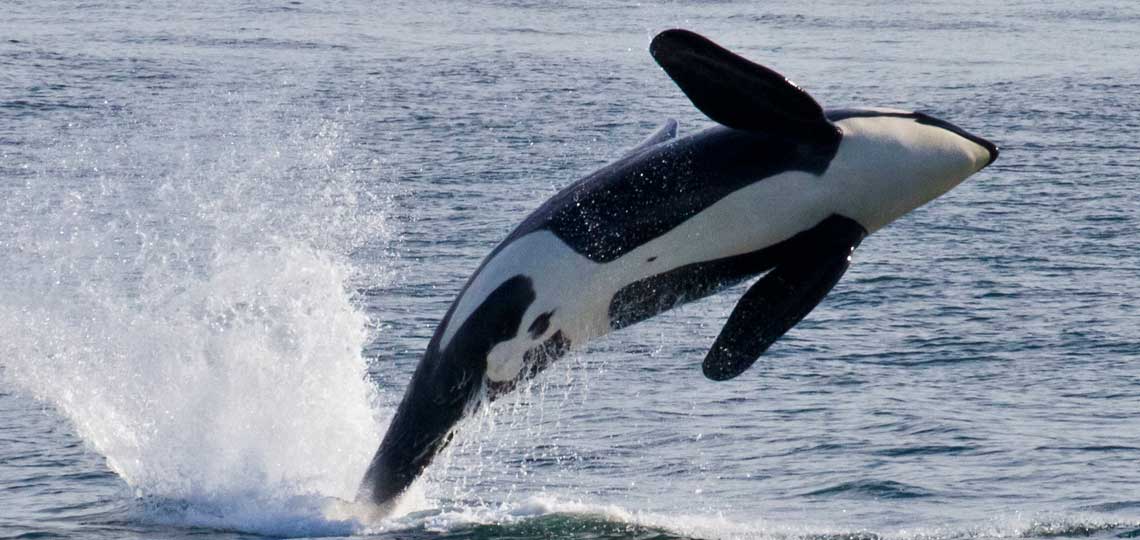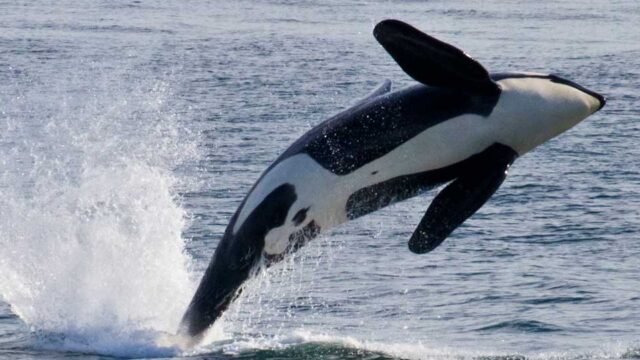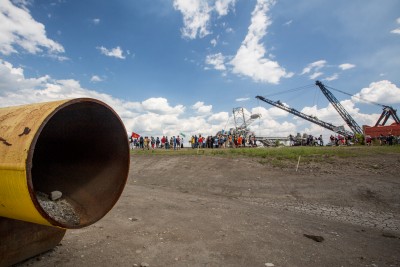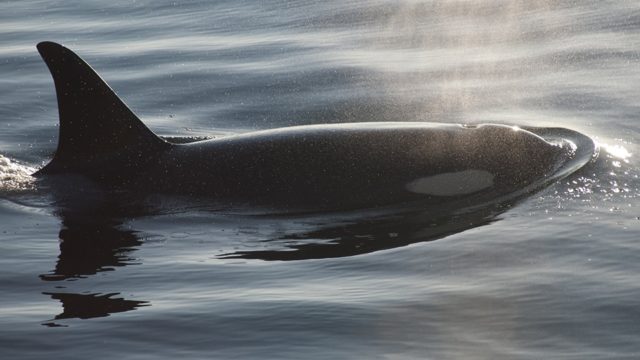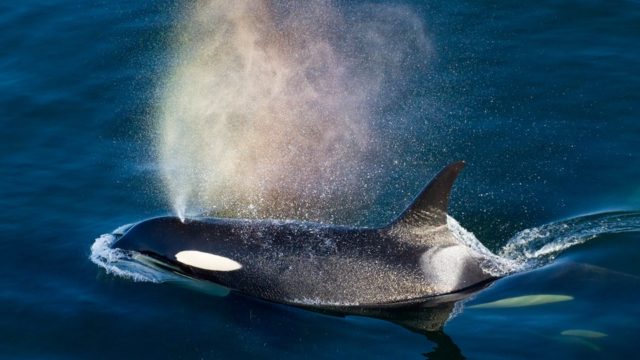On May 1, 2024, oil started flowing through the Trans Mountain Expansion (TMX). Those who’ve been following our decade-plus struggle against this project will understand what a blow this is to the only 74 Southern Resident Killer Whales on the planet.
The endangered Southern Residents are a genetically and culturally distinct population of orcas within the Pacific Northwest — and they’re facing a grim future.
On behalf of our clients — the David Suzuki Foundation, Georgia Strait Alliance, Living Oceans Society, Natural Resources Defense Council, Raincoast Conservation Foundation and World Wildlife Fund Canada — we’ve sent a petition to the Minister of Fisheries and Oceans and Minister of Environment and Climate Change, requesting they recommend Cabinet issues an emergency order under the Species at Risk Act (SARA).
Back in 2018, in response to a petition by Ecojustice on behalf of many of the same groups, the Ministers responsible for the Southern Residents decided that the whales faced imminent threats to their very survival, and their recovery — including from the impacts of shipping traffic and a shortage of Chinook salmon prey.
Sadly, threats to the Southern Residents’ future have only intensified with projects such as TMX and Roberts Bank Terminal 2 continuing to be approved in their critical habitat. Physical and acoustic disturbance from tanker traffic in the Salish Sea threatens the survival of these endangered orcas — with TMX increasing capacity from five loaded tankers per month to a staggering 34.
When the federal government approved TMX in 2019, it promised to implement 16 recommendations from the Canada Energy Regulator intended to help address the additional vessel noise and oil spill risk posed by the project. Canada had previously committed to “more than mitigate” the impacts before shipping began. As of now, the government has still failed to implement any of the 16 measures.
Unless something changes for the better, the Southern Resident Killer Whales face a real risk of extinction this century. The government must live up to its commitment to protect this iconic species. They need to mitigate the risk of an oil spill, and the physical and acoustic disturbances from increased tanker traffic in the Salish Sea. By law, the federal government is responsible for protecting all at-risk marine species — including the Southern Residents — and Ecojustice is here to hold them accountable.

